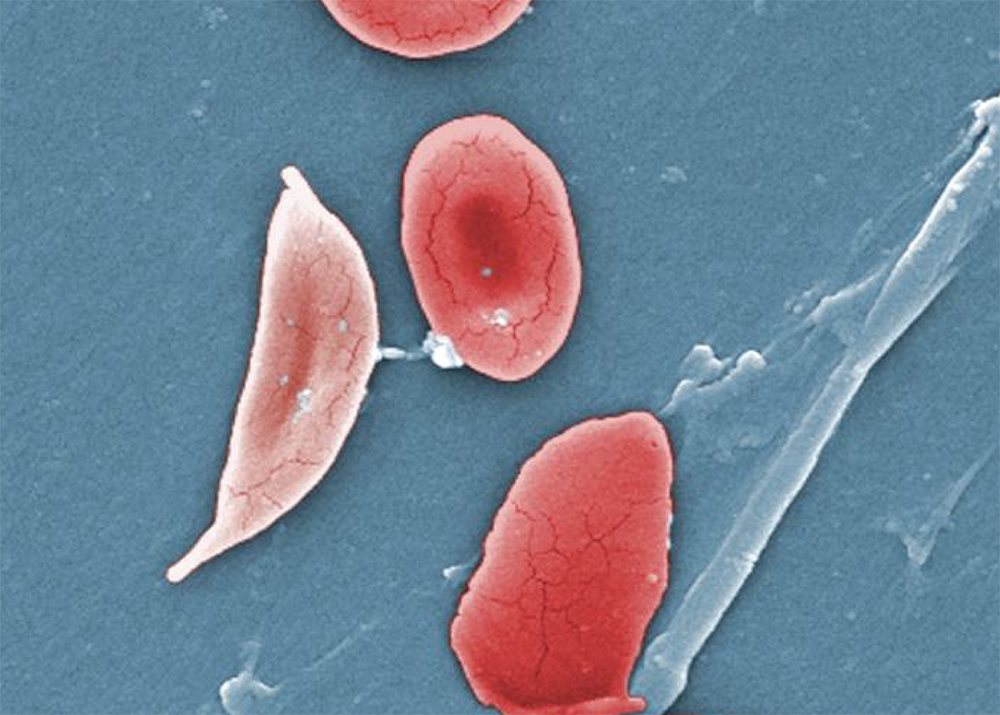Sickle cell disease (SCD) patients were given new hope in late 2023 when the Food and Drug Administration (FDA) approved two novel treatments. One of them, developed by Vertex Pharmaceuticals and CRISPR Therapeutics, uses the revolutionary gene-editing method CRISPR and marks a significant step forward for those affected by SCD.
In the new episode of the I am BIO Podcast, Is CRISPR the New Sickle Cell Savior?, David Altshuler, Chief Scientific Officer of Vertex Pharmaceuticals, explains that CASGEVY showed significant potential for reducing and preventing pain crises with a 90% success rate in clinical trial participants.
“CASGEVY is a one-time treatment for a potential lifetime of benefit,” Altshuler said.
And though the treatment is not a cure and cannot restore any organ damage from SCD, Altshuler says “100% of the patients had no hospitalization for pain crises after this time. So, it looks thus far to be a very effective medicine.”
Another gene therapy, LYFGENIA by bluebird bio, won FDA approval in late 2023. It “has the potential to resolve vaso-occlusive events and is custom-designed to treat the underlying cause of sickle cell disease.”
Paving the way for sickle cell breakthroughs
Paving the way for SCD treatments was Global Blood Therapeutics’ (GBT) Oxbryta, the first drug targeting the underlying cause of the disease. Oxbryta received accelerated approval from the FDA in 2019. In 2022, GBT was acquired by Pfizer, a move that benefits sickle cell patients in a number of ways, like making treatments and resources more available and accessible, explains BIO Chair (and former GBT CEO) Dr. Ted Love.
As a physician, Dr. Love was moved by the struggles of SCD patients, the lack of treatments, “and also, the racism that these patients faced,” which is why he came out of retirement to raise awareness and push for more R&D.
A push for a patient-first policy
For Mapillar Dahn, a mother of three daughters with sickle cell disease, raising public and patient awareness about the disease is imperative.
“The impact of dealing with a condition that is invisible just makes it so hard to get the help that a person or the caregivers may need, because oftentimes you’re met with skepticism as to, ‘I know you say you’re sick, but are you really sick,’” she shared with I am BIO.
Dahn is the founder and CEO of the MTS Sickle Cell Foundation. One of her main goals is for health professionals to understand the disease.
To raise more awareness, the MTS Sickle Cell Foundation partnered with the Georgia Public Library Service to provide as much information as possible. MTS is also preparing for a therapeutic summit in April 2024.
“There needs to be a lot of education surrounding gene therapy and even some of the other therapies that have been approved. So, the therapeutic summit is going to help to educate the community about these different therapies that exist for sickle cell disease,” Dahn added.
Dahn’s foundation offers temporary financial support services for SCD-affected families for rent and utilities, as well as scholarships for patients, siblings of sickle cell patients, and children of sickle cell patients.
“There is still much work to be done to ensure a more hopeful future for those living with sickle cell disease,” says podcast host Theresa Brady.
Visit www.bio.org/podcast for more episodes of I Am BIO.




